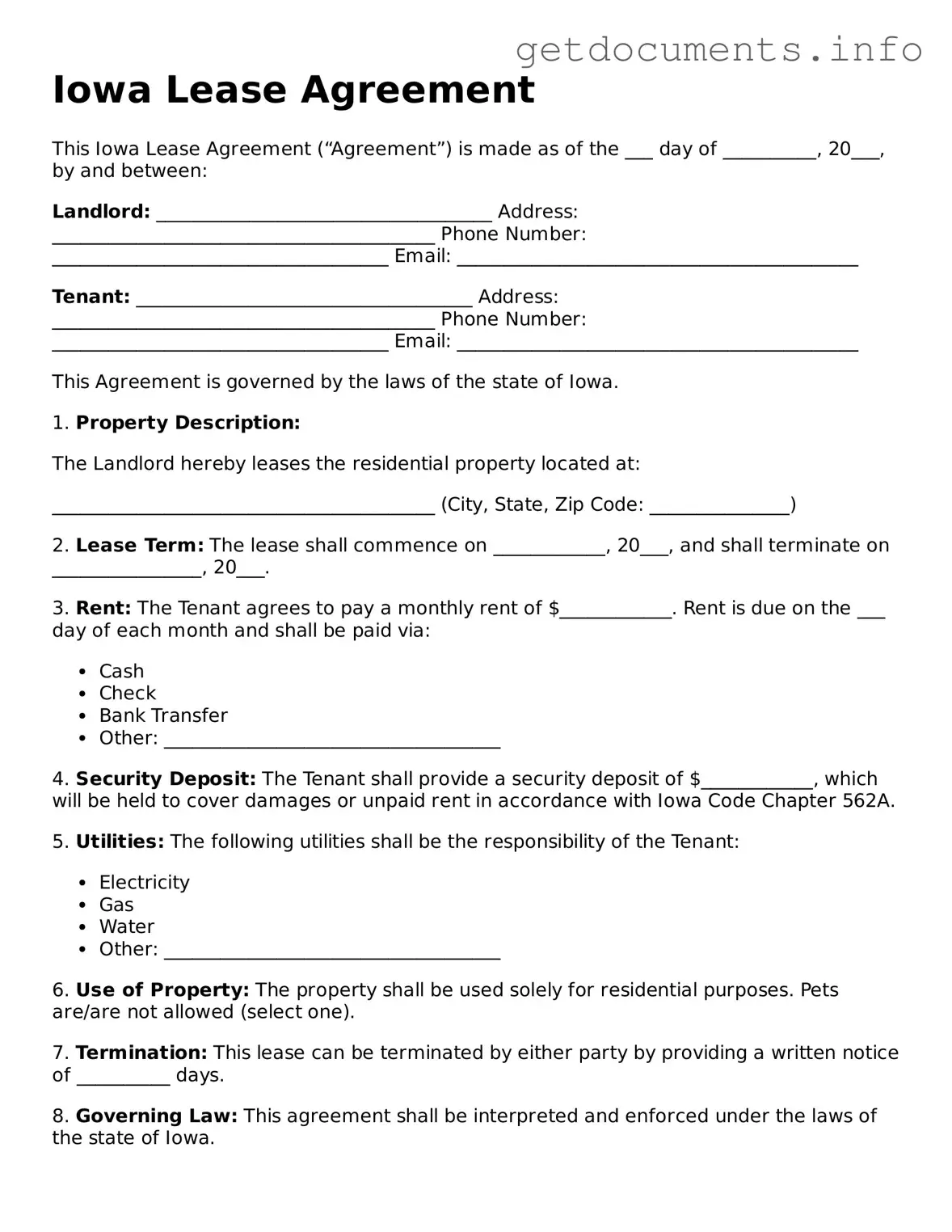Free Lease Agreement Template for Iowa
The Iowa Lease Agreement form is a legal document that outlines the terms and conditions between a landlord and a tenant for renting a residential property in Iowa. This agreement serves to protect the rights of both parties, ensuring a clear understanding of responsibilities, payment terms, and property use. If you're ready to secure your rental arrangement, fill out the form by clicking the button below.
Access Lease Agreement Editor

Free Lease Agreement Template for Iowa
Access Lease Agreement Editor
Got places to be? Complete the form fast
Fill out Lease Agreement online and avoid printing or scanning.
Access Lease Agreement Editor
or
⇩ PDF File
